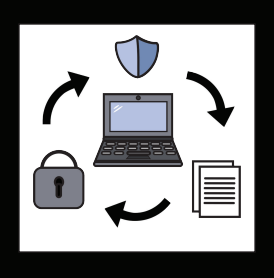
In the corridors of VHHS, where knowledge intertwines with technology, a silent guard keeps a watchful eye—our Chromebook flagging system known as Securly.
Serving as both a gatekeeper and protector, this implementation stands as a response to maintaining a secure school environment. Yet, one may wonder how the system navigates the complex relationship between respecting student privacy and encouraging the internet for learning.
According to VHHS Assistant Principal, Greg Stilling, Securly was strategically introduced during the summer of 2017 to monitor Chromebook activities. This is followed by Chromebook activity reports generated by the system that are selectively shared with administrators, social workers, and parents. Parents have the option to opt into receiving these reports, and during registration, they can choose to restrict their child’s search capabilities strictly at home.
Avelino Cortez, VHHS dean, and Stilling said that when it comes to flagging activity, Securly specifically focuses on keywords associated with potential harm.
“We don’t want to be the naughty word police. We want to know things like, is a kid going to hurt themselves? Is a kid going to hurt somebody else? Are they searching illegal drugs? Are they searching about guns?” Stilling said.
Yet, there will always be room for misunderstandings which are proactively being monitored. An example Stilling shared was regarding a scenario related to a physics term, “bomb kilometer,” where students might search for information on making a bomb as part of a project. If the system detects a search, it will prompt further investigation. However, the student can clarify that it’s for a school project, and there are no consequences.
Having said this, these misunderstandings cause students to reach for another device as opposed to relying solely on the provided Chromebook.
Giselle Alas Sandoval (9) said, “I only use this device at school and when I do my homework, but when I do research for school work, I use another device precisely because of the fear of an error.”
Sandoval suggested that the school address certain issues regarding the flagging system. For example, when students face difficulties accessing specific videos or websites that teachers assign to the class.
Despite misunderstandings, Cortez noted the importance of looking further into the situation.
“Ultimately, it’s better to err on the side of caution than to just let things slide. We’d like to follow through and make sure that everything’s okay, even if it was a false alarm. We want to make sure that we’ve circled it as a false alarm instead of letting it linger—students often associate getting called down to the LST with being in trouble, but it’s the learning support team. We’re here to support students,” Cortez said.
